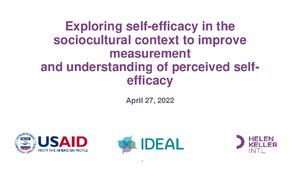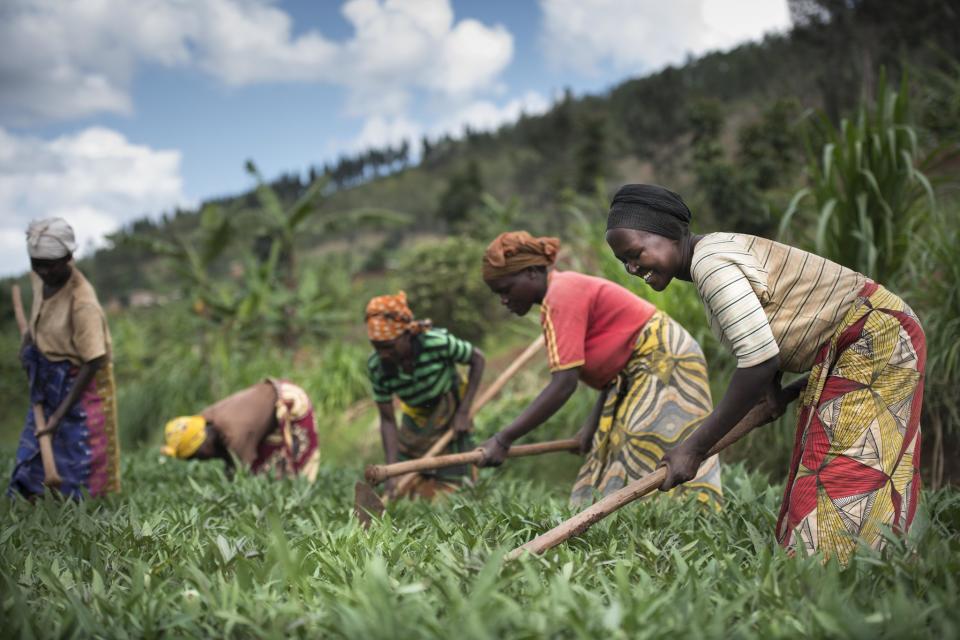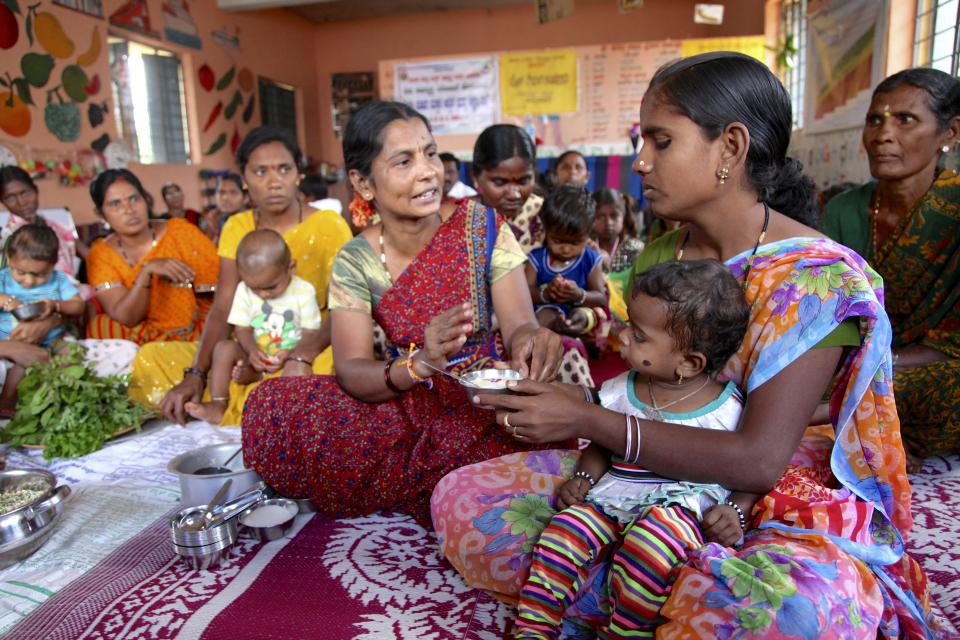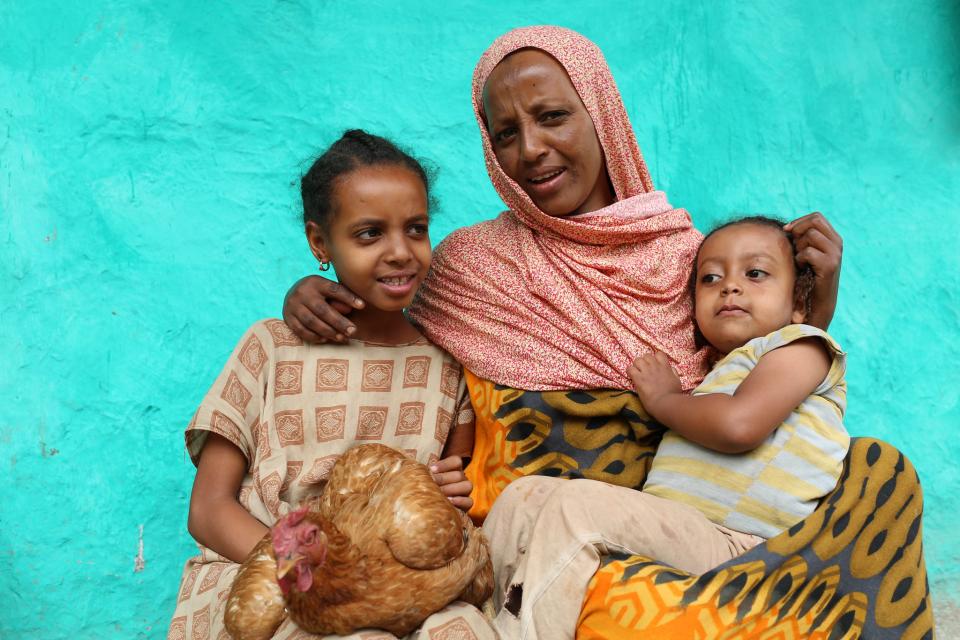Validating measures of women’s empowerment for high-quality, comparable results
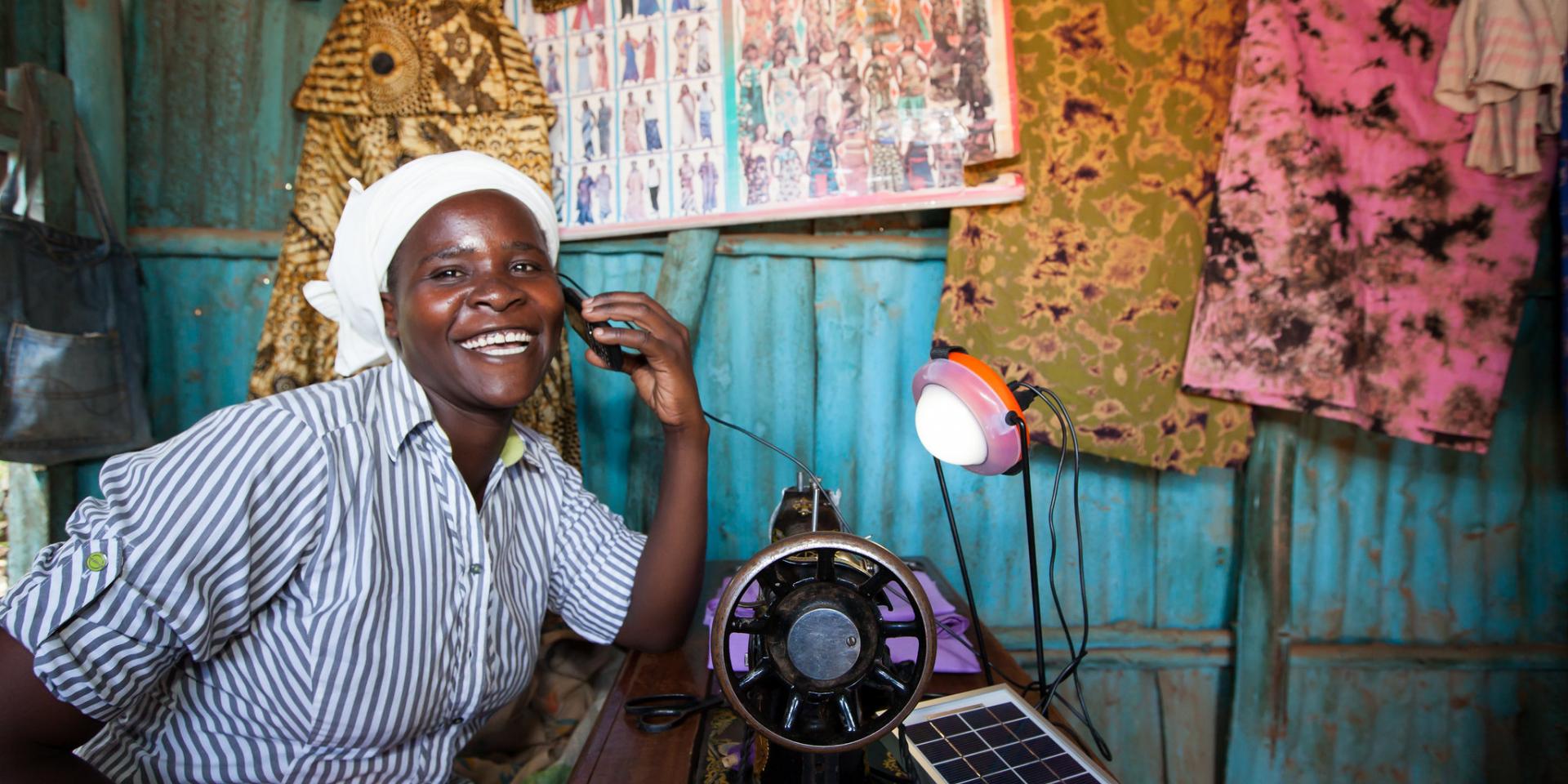 Photo: Corrie Wingate/SolarAid
Photo: Corrie Wingate/SolarAid
What gets measured, gets done—but tools must produce precise, comparable results to enable us to track progress toward women’s empowerment across projects, sectors and regions.
Measuring women’s empowerment is crucial for assessing progress toward gender equity and sustainable development goals.
Increased interest in measuring women’s empowerment and gender equality in agriculture and food systems has led to growing efforts to adapt and customize existing measurement tools, such as the Women’s Empowerment in Agriculture Index (WEAI), to specific uses.
Some of these efforts have involved minor adaptations of the metrics to local contexts (for example, using context-specific asset lists or types of community groups), while others have transformed the ways in which empowerment is defined and measured. These more consequential changes may mean that empowerment measures resulting from different tools cannot be compared, which complicates tracking progress across for example projects, sectors or regions. That’s why we need to more carefully validate empowerment measures.
Different types of validities are related to different objectives and will therefore require different strategies. For example, understanding whether an empowerment measure retains the same meaning across contexts, whether it is associated with other measures of bargaining power or whether results are sensitive to the choice of parameters will all require different approaches. While we do not expect every empowerment tool to aim for all types of statistical validity, the most critical step is to recognize validation as an ongoing, mixed-methods process that begins from the conceptualization of a measure and that should be embedded throughout the process of testing and adapting the tools.
Recognizing the breadth of women’s empowerment measurement validation efforts beyond the WEAI family of metrics, the Methods Module of the CGIAR GENDER Impact Platform has launched a new community of practice called the “Women’s Empowerment Measurement Validation Community of Practice” (WE-Validate CoP). This community is a space for researchers and practitioners in CGIAR and beyond to share information and good practices around developing and validating women’s empowerment metrics.
Highlights from the WE-Validate CoP webinar series
The WE-Validate CoP launched an exciting webinar series this year for sharing emerging lessons, learning new and innovative approaches, and building collective knowledge across the community. Each webinar addresses a specific research topic related to women’s empowerment measures (tools and methods), study findings and implications, and offers opportunities for discussion by participants.
The Abbreviated Women’s Empowerment in Nutrition Index (A-WENI) or the Abbreviated Women’s Empowerment in Agriculture Index (A-WEAI)? Assessing concurrent and predictive validity of women’s empowerment measures in India
The first webinar in the series was held in February and featured presentations by Lily Bliznashka and Lindsay Jaacks at the University of Edinburgh. The webinar focused on research objectives and methodologies assessing concurrent and predictive validity of two different women’s empowerment measures—the Abbreviated Women's Empowerment in Nutrition Index (A-WENI) and the Abbreviated Women's Empowerment in Agriculture Index (A-WEAI)—in the BLOOM (Co-Benefits of Largescale Organic Farming on Human Health) study, a cluster randomized controlled evaluation of the Andhra Pradesh Community-Managed Natural Farming Programme in India.
Although women’s empowerment is one of the proven pathways through which agriculture can influence women’s and children’s health and nutrition, the evidence remains mixed and inconclusive largely due to its multidimensional nature and various measurement challenges. Evidence on predictive validity of these measures against women’s and children’s nutritional outcomes is also lacking. The BLOOM study aims to build the evidence base on how the two metrics are associated, how they are associated with women’s and children’s nutritional outcomes, and the metrics’ ability to capture the effects of agricultural interventions on women’s empowerment.
This first webinar in the series took place on February 24, 2022.
Women’s empowerment in agriculture in times of COVID-19: Panel data evidence from Nepal
In March, the CoP hosted the second webinar titled “Women’s Empowerment in Agriculture in times of COVID-19: Panel data evidence from Nepal” jointly with the Gender Task Force at the International Food Policy Research Institute (IFPRI). The webinar was presented by three colleagues at the Food and Agriculture Organization of the United Nations (FAO), Erdgin Mane, Annarita Macchioni Giaquinto and Rumbidzai Ndoro, and introduced a study exploring the empowerment of Nepalese women in the context of the COVID-19 pandemic using A-WEAI.
The presentation was structured in three parts. The first part presented methodologies and some of the challenges with collecting data for the A-WEAI modules in computer-assisted telephone interviewing (CATI) due to COVID-19 pandemic restrictions. It then explored the changes in the A-WEAI indicators between 2017 and 2020, investigating different gender intersectionality in part two. The last part assessed the impacts of COVID-19-induced shocks and stressors on empowerment indicators. Since the study was the first attempt at implementing WEAI using a phone survey in the context of COVID-19, the presentation sparked great interest and questions from the audience about topics such as challenges of using CATI and gendered impacts of COVID-19 on women’s empowerment.
This second webinar in the series took place on March 31, 2022.
Exploring women’s self-efficacy in the sociocultural context to improve measurement and understanding of perceived self-efficacy
The third webinar in April broadened discussions to include qualitative aspects and methodologies in measuring women’s empowerment, focusing on self-efficacy. Meredith Jackson-deGraffenried and Md Abul Kalam from Helen Keller International presented their recent study exploring women’s self-efficacy in the sociocultural context to improve measurement and understanding of perceived self-efficacy.
While self-efficacy is often considered a factor on the resilience pathway to improved food security and nutrition, it is routinely measured using the General Self-Efficacy Scale (GSES) or similar tools that are developed by academics or researchers from an outsider’s or etic perspective. With funding from the Implementer-Led Design, Evidence, Analysis and Learning (IDEAL) activity, Helen Keller conducted research to develop a tool to measure perceived self-efficacy defined from an insider’s or emic perspective, and these perceived self-efficacy scales (PSES) were tested among three ethnic groups in Bangladesh. The study found that PSES with high emic validity explain a portion of resilience capacity that is not captured by other measures, such as GSES. This suggests that a scale that is defined in a culturally meaningful way might better capture information that is critical to improving people’s resilience.
This third webinar in the series took place on April 27, 2022.
Future plans for the community of practice
Going forward, the WE-Validate CoP will continue to host monthly webinars as part of this ongoing series throughout the year. In addition, a dedicated online collaborative tool will soon be available to better facilitate communication and sharing among the members of the CoP. Be sure to check the CGIAR GENDER Platform website periodically for our upcoming announcement on how to join the community and its online platform.
References
A-WENI or A-WEAI? Assessing concurrent and predictive validity of women’s empowerment measures in Andhra Pradesh, India
Women’s Empowerment in Agriculture in times of COVID-19: Panel data evidence from Nepal
